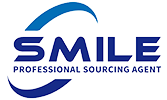
In the realm of international trade, particularly for businesses looking to source products from China, employing a reliable purchasing agent can be instrumental. This article explores various facets of sourcing agents in China, from their costs to qualifications and potential pitfalls.
1. Cost Considerations of Purchasing Agents in China
Understanding the financial aspects is crucial when engaging a purchasing agent in China. Costs can vary widely depending on several factors:
Commission Structure
Typically, purchasing agents in China charge a commission based on the total value of the order. This commission can range from 3% to 10%, depending on the complexity and size of the order. A higher commission might be justified for more complex orders that require additional oversight or expertise.
Additional Fees
Beyond the basic commission, purchasing agents may charge additional fees for a variety of services. These can include:
- Factory Audits: Ensuring the factory meets specific standards and can produce the required goods.
- Quality Inspections: Verifying that the products meet the specified quality standards before shipment.
- Logistics Management: Coordinating the shipping and handling of goods to ensure timely delivery.
These additional services can significantly impact the overall cost, so it’s important to understand what is included in the agent’s fee and what might incur extra charges.
Payment Terms
Clarifying payment terms upfront is essential to avoid misunderstandings. Purchasing agents in China may require a portion of the payment upfront or upon placing the order. Common payment structures include:
- Deposit Payments: A percentage of the total order value paid upfront.
- Milestone Payments: Payments made at various stages of the order process.
- Final Payment: The remaining balance paid upon completion or delivery of the order.
2. Main Responsibilities of Purchasing Agents in China
Purchasing agents in China undertake several critical responsibilities to facilitate smooth transactions:
Supplier Identification
One of the primary roles of a purchasing agent in China is to identify and assess potential suppliers. Agents meticulously evaluate suppliers based on the buyer’s requirements and quality standards. This involves conducting market research, visiting factories, and assessing the capabilities and reliability of various suppliers to ensure they meet the specific needs of the buyer.
Price Negotiation
Another vital responsibility of a purchasing agent in China is price negotiation. These agents negotiate prices and terms with suppliers to secure competitive pricing and favorable conditions for the buyer. They leverage their local market knowledge and bargaining skills to obtain the best deals, ensuring cost savings and advantageous terms that benefit their clients.
Quality Control
Maintaining high product quality is crucial for successful transactions. Purchasing agents in China conduct thorough inspections and quality control checks before, during, and after production. This involves visiting manufacturing sites, performing random checks, and ensuring that products adhere to the agreed-upon quality standards. By doing so, agents help minimize the risk of defects and ensure that buyers receive products that meet their expectations.
Logistics Coordination
Efficient logistics coordination is essential for timely and cost-effective shipments. Purchasing agents in China manage the entire logistics chain, including shipping, customs clearance, and delivery. They work closely with freight forwarders, customs officials, and logistics providers to ensure smooth and efficient shipment processes. By handling these logistics aspects, agents help prevent delays and ensure that products reach their destinations on time.

3. Obtaining Qualifications as a Chinese Purchasing Agency
Becoming a qualified purchasing agency in China requires meeting several important criteria that ensure the agency operates legally, credibly, and effectively within the industry. Here’s a detailed breakdown of the essential qualifications and steps involved:
Legal Registration
The first and foremost requirement for any purchasing agency in China is to be legally registered and licensed. This involves:
- Business License: Obtaining a business license from the local Administration for Industry and Commerce (AIC). This license certifies that the agency is legally recognized and can conduct business activities within China.
- Tax Registration: Registering with the local tax authorities to ensure the agency complies with Chinese tax regulations. This includes obtaining a tax identification number and regularly filing tax returns.
- Import-Export License: If the agency will be handling import and export activities, obtaining the necessary import-export license from the Ministry of Commerce is crucial. This license allows the agency to legally engage in cross-border trade.
- Other Certifications: Depending on the specific industry or type of products being sourced, additional certifications or permits may be required. For example, certifications for handling certain types of goods such as electronics, food products, or hazardous materials.
Industry Experience
Having substantial industry experience significantly enhances the credibility and trustworthiness of a purchasing agency. This includes:
- Relevant Experience: Demonstrating a history of working within the specific industry or sectors the agency plans to source products from. This experience should include knowledge of industry standards, regulations, and best practices.
- Track Record: Building a strong track record of successful sourcing and procurement activities. This can be evidenced through case studies, client testimonials, and references from reputable companies.
- Professional Expertise: Employing staff with professional expertise in procurement, supply chain management, and quality control. Experienced professionals can navigate the complexities of sourcing in China more effectively.
Network and Relationships
Building a robust network of suppliers and maintaining good relationships is crucial for effective sourcing. This involves:
- Supplier Network: Developing a diverse and reliable network of suppliers. This includes both manufacturers and distributors who can provide high-quality products at competitive prices. Regularly vetting and auditing suppliers to ensure they meet required standards.
- Strong Relationships: Cultivating strong relationships with suppliers through consistent communication, trust-building, and mutual respect. Good relationships can lead to better terms, priority treatment, and quicker resolution of any issues that may arise.
- Market Knowledge: Staying informed about market trends, price fluctuations, and new suppliers entering the market. This knowledge allows the agency to adapt and find the best sourcing opportunities.
Additional Considerations
In addition to the primary criteria, there are other factors that can enhance the qualifications of a purchasing agency in China:
- Technology and Tools: Utilizing advanced technology and tools for procurement management, such as supply chain management software, quality control systems, and real-time tracking.
- Compliance and Ethics: Ensuring compliance with ethical standards and corporate social responsibility (CSR) practices. This includes fair labor practices, environmental sustainability, and anti-corruption measures.
- Customer Service: Providing excellent customer service to clients, including transparent communication, timely updates, and responsive support. Building a reputation for reliability and professionalism can set an agency apart from competitors.

4. Common Pitfalls and Bad Practices
While many purchasing agents operate ethically and with integrity, there are several potential pitfalls that buyers should be aware of to avoid problems and ensure successful procurement processes. Here are some key issues to consider:
Kickbacks and Commissions
One of the most significant risks in dealing with purchasing agents is the possibility of undisclosed kickbacks or commissions. This issue arises when:
- Hidden Incentives: Some agents may receive financial incentives from suppliers without the buyer’s knowledge. These kickbacks can compromise the agent’s impartiality, leading them to favor certain suppliers regardless of the suppliers’ product quality or pricing.
- Conflict of Interest: The existence of secret commissions creates a conflict of interest. An agent prioritizing their own financial gain over the buyer’s best interests can result in poor purchasing decisions, higher costs, and subpar products.
- Transparency Issues: Lack of transparency in transactions and relationships can erode trust between the buyer and the agent. Buyers need to establish clear agreements and maintain open lines of communication to mitigate this risk.
Quality Issues
Ensuring product quality is a critical concern in any procurement process. Inadequate quality control measures can lead to:
- Substandard Products: If the purchasing agent does not implement rigorous quality control procedures, substandard or defective products may be delivered to the buyer. This can cause significant operational disruptions, financial losses, and damage to the buyer’s reputation.
- Inconsistent Standards: Quality standards may vary widely among suppliers. Without proper oversight, agents may source from suppliers that do not meet the required specifications or industry standards, resulting in inconsistent product quality.
- Inspection Failures: Reliable quality inspection and testing are essential. Agents should conduct thorough inspections and testing of products before shipment to ensure they meet the buyer’s requirements. Failure to do so can result in costly returns, rework, and delays.
Communication Challenges
Effective communication is crucial in the procurement process, especially when dealing with international suppliers. Potential challenges include:
- Language Barriers: Differences in language can lead to misunderstandings and errors in orders or specifications. Misinterpretations can result in incorrect products being shipped or critical details being overlooked.
- Cultural Differences: Cultural differences in business practices and communication styles can also pose challenges. Misaligned expectations and approaches to negotiation, problem-solving, and relationship-building can affect the efficiency and success of transactions.
Clarity and Detail: Clear and detailed communication of requirements, specifications, and terms is essential. Agents must ensure that all parties have a mutual understanding of the expectations to avoid discrepancies and conflicts.
Payment Risks
Financial transactions in the procurement process carry inherent risks, including:
- Advance Payments: Making advance payments without proper verification can expose the buyer to financial losses. If the goods are not delivered as agreed, or if they fail to meet quality standards, recovering the payment can be difficult.
- Verification of Goods: Before releasing payments, it is crucial to verify that the goods received match the order specifications and quality requirements. This includes conducting inspections and ensuring that the products meet all agreed-upon criteria.
- Payment Security: Implementing secure payment methods and terms can reduce the risk of fraud and financial loss. Buyers should use trusted payment platforms and establish clear terms for payment releases contingent on the successful delivery and inspection of goods.
Such unethical and illegal behaviour is never allowed at Smilepurchasing. Before purchasing co-operation begins, we will have an open and transparent co-operation agreement to protect multilateral rights and interests throughout the process. In addition to helping you get competitive prices for your products, we are also committed to safeguarding the follow-up process, as we understand that good service is the core competitiveness in our business model. For some individual sourcing agents who do one-off business, it is usually impossible to guarantee the quality of service.
This comprehensive guide aims to equip businesses with the knowledge needed to make informed decisions when selecting a purchasing agent in China, ensuring smooth sourcing operations and minimizing risks. For more detailed guidance or specific inquiries, feel free to contact us.
Contact Us
For more information about our services, please feel free to contact us:
- Phone: +86-15807201913(WhatsApp/WeChat)
- Email: [email protected]



